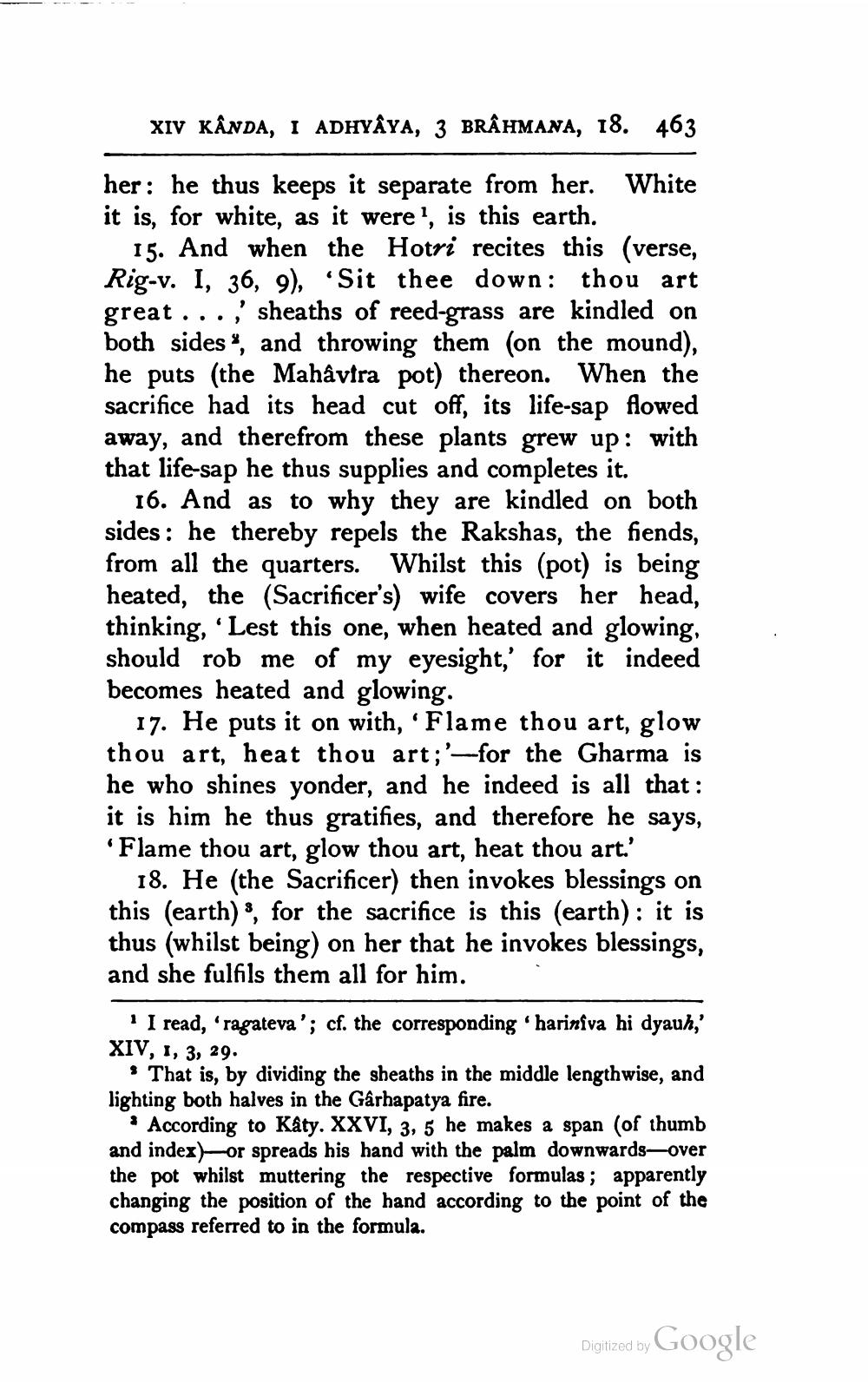________________
XIV KÂNDA, I ADHYAYA, 3 BRÂHMANA, 18.463
her: he thus keeps it separate from her. White it is, for white, as it werel, is this earth.
15. And when the Hotri recites this (verse, Rig-v. I, 36, 9), "Sit thee down: thou art great ...,' sheaths of reed-grass are kindled on both sides, and throwing them (on the mound), he puts (the Mahavira pot) thereon. When the sacrifice had its head cut off, its life-sap flowed away, and therefrom these plants grew up: with that life-sap he thus supplies and completes it.
16. And as to why they are kindled on both sides: he thereby repels the Rakshas, the fiends, from all the quarters. Whilst this (pot) is being heated, the (Sacrificer's) wife covers her head, thinking, 'Lest this one, when heated and glowing, should rob me of my eyesight,' for it indeed becomes heated and glowing.
17. He puts it on with, 'Flame thou art, glow thou art, heat thou art;'--for the Gharma is he who shines yonder, and he indeed is all that: it is him he thus gratifies, and therefore he says, 'Flame thou art, glow thou art, heat thou art.'
18. He (the Sacrificer) then invokes blessings on this (earth) $, for the sacrifice is this (earth): it is thus (whilst being) on her that he invokes blessings, and she fulfils them all for him.
'I read, 'ragateva'; cf. the corresponding 'hariniva hi dyauh,' XIV, 1, 3, 29.
* That is, by dividing the sheaths in the middle lengthwise, and lighting both halves in the Garhapatya fire.
* According to Katy. XXVI, 3, 5 he makes a span (of thumb and index)or spreads his hand with the palm downwards—over the pot whilst muttering the respective formulas; apparently changing the position of the hand according to the point of the compass referred to in the formula.
Digitized by Google




